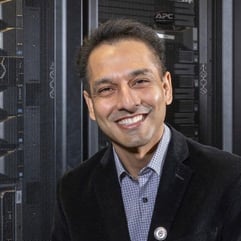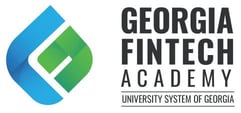
Our experts and industry insiders blog the latest news, studies and current events from inside the credit card industry. Our articles follow strict editorial guidelines.
In a Nutshell: The state of Georgia in the southern US has rapidly become home to about 70% of the nation’s payment processing industry and approximately 200 financial technology (fintech) firms. In Fall 2022, the Michael J. Coles College of Business at Kennesaw State University (KSU), located in metro Atlanta, began offering a Master of Science in Digital Financial Technologies to fuel this thriving industry. KSU’s innovative Master’s in Fintech is an 18-month interdisciplinary online program ideal for career switchers and other talented individuals interested in becoming part of the fintech explosion in Georgia.
The state of Georgia isn’t a place that’s resting on its laurels. If you’re a sports fan, you know it’s a college football mecca in a state where seemingly everybody loves rooting for their team. You may also know movie and television producers worldwide love locating in Georgia because of the state’s pro-business reputation and reliable workforce.
But you may not know Georgia, notably “Transaction Alley” in the metro Atlanta area, is rapidly becoming the US’s foremost financial technology (fintech) center. Georgia is now home to about 70% of the nation’s payment processing industry, according to the state’s Department of Economic Development.

Those payment processors are among more than 200 Georgia-based fintech firms offering banking, blockchain, information security, and data analytics services. Fintech firms and the financial and consumer power they represent provide Georgia residents and new arrivals with fulfilling and lucrative employment opportunities that perfectly mesh with US economic priorities in this age of digital transformation.
Of course, none of this is occurring spontaneously. In keeping with Georgia’s sports focus, a team effort among political and corporate leaders and educational institutions is making it happen. Through its innovative 18-month Master of Science in Digital Financial Technologies program, the Cole College of Business at Kennesaw State University (KSU) is at the forefront of Georgia’s transformation to a fintech hub.
Program Director Dr. Humayun Zafar, professor of information security and assurance at Cole, said the University System of Georgia (USG) quickly stepped up to authorize the Master’s in Fintech to help the state sustain its burgeoning leadership role.
“The industry told us we needed a graduate degree to accommodate the career switchers in our population,” Zafar said. “USG fast-tracked it because it’s a natural fit for the needs in our state.”
Experiential Learning with Emphasis on Job Readiness
Payment processors are the firms responsible for facilitating card payments that connect businesses and consumers. Zafar said USG and the team at Michael J. Coles College of Business, including Dr. Khawaja Saeed, Chair of the Department of Information Systems and Security, which houses the program, considered the program’s 18-month online format to be the sweet spot for differentiating it among offerings at nearby competitors, including Emory University, Georgia State University, and the Georgia Institute of Technology, also known as Georgia Tech.
Those nationally and internationally known research institutions are all within 30 miles of KSU. Evidence of a need for KSU’s program is that it attracted significant student interest in its first year despite not being advertised.

“It’s a 100% asynchronous online offering that mixes seven- and 16-week courses,” Zafar said. “Our focus is workforce development — we wanted to create a distinguishable program highly aligned with industry needs.”
That means a remote-based course to prepare workers for jobs they could do from anywhere. As local chambers of commerce and other business stakeholders have created a welcoming environment for fintech businesses, KSU and the Michael J. Coles College of Business have designed a modern results-oriented learning lab.
In other words, supplying graduates for Georgia’s fintech companies may be the program’s primary goal, but students from anywhere may enroll and seek employment anywhere they prefer when they graduate.
“We want to encourage our talent to stay in Georgia, of course, but the ultimate hope is that all our students are successful,” Zafar said.
The self-contained program makes every effort to ensure that’s the case. It does not assume students will enter with a technological or business finance background. The team designed the degree to appeal to all career starters and switchers with aptitude and willpower.
“There’s a reason fintech is well-paying — it’s really hard,” Zafar said.
Work with Corporates in a Global Payment Hub
Although the master’s program got off the ground in 2022, Zahar and KSU had previously been involved in fintech for several years at the undergraduate level, partnering with industry stakeholders through Georgia Fintech Academy, the university system’s development platform for specialized educational experiences in fintech to develop an undergraduate minor in fintech.
Fintech at KSU is now in growth mode and includes events and career fair opportunities aimed at undergraduates and master’s candidates.
The hands-on learning the master’s program requires emphasizes industry partnerships. The program’s capstone course, Experiential Learning in Fintech Payments, incorporates a Fortune 100 financial partner in team-based scenarios. Direct communication with corporate executives helps students develop practical solutions to real-world problems and learn project management skills relevant to the needs of Atlanta’s payment processors and other fintechs.

“There’s not a single lecture in the course — it’s purely project-based,” Zafar said.
Another course, Fintech Payments Security and Assurance, presents a problem-solving scenario through an industry partner, this time with a standards and compliance focus. Other courses include a foundational survey of the payment process ecosystem and the history of payments, a study of emerging payment technologies, and an examination of laws, regulations, and policies related to the global payments industry.
There’s also a course on data analytics and business intelligence and one on blockchain, the platform technology underlying cryptocurrency. As fintech evolves, industry partners and course content will continue to adapt to changing market conditions and industry needs and expectations.
For example, current industry watchwords like machine learning and artificial intelligence appear in course electives. The goal is to supply students with the knowledge and experience they need to hit the ground running.
“There are plenty of pathways,” Zafar said.
Preparing Students for Lucrative and Rewarding Careers
It’s not always obvious why one region or state prevails over others in the race to cater to the potential in its employment market. But in the case of Georgia, business-ready public administration, an educated workforce, and educators with the wherewithal to innovate have combined to create a unique environment for progress.
KSU’s Master’s in Fintech is a prime example of how opportunity arises from a confluence of factors aimed toward the same goal. Students are the immediate beneficiaries, but Georgia’s payments industry gains a stronger foothold in a state where that result may not have seemed obvious a few years ago.
It helps that KSU is one of the most affordable universities in the state university system. In a relatively small region where elite institutions have an outsized impact, KSU’s Master’s in Fintech stands out as a program where students, faculty, and corporates work as teams to produce results, and graduates find immediate placement.
There’s plenty of room for political debate in Georgia, but not when everybody works together to produce positive economic results.
Meanwhile, digital transformation in fintech, particularly the payments industry, isn’t stopping to ensure everyone stays caught up. Zafar said KSU is on the cutting edge of professionalizing an industry where making it up as you go along has traditionally been the rule rather than the exception.
KSU grads are coming in well-versed in the industry’s tradition of innovation but prepared to use their institutional knowledge to move things to the next generation. Zafer said students who take advantage of the program’s affordability and the promise of lucrative industry placements stand a great chance to be future leaders.
“Executives now want their incoming employees to go through these kinds of programs to understand what it means to work in this environment,” Zafar said. “To maintain Georgia’s position as a fintech hub, we must continue to innovate as an institution and academic enterprise.”



![Average Credit Card Debt by State in [current_year] Average Credit Card Debt by State in [current_year]](https://www.cardrates.com/images/uploads/2023/06/CR-AverageCreditCardDebtbyState-1250X650.jpg?width=158&height=120&fit=crop)




![9 Best Apple Pay Credit Cards ([updated_month_year]) 9 Best Apple Pay Credit Cards ([updated_month_year])](https://www.cardrates.com/images/uploads/2021/02/Best-Apple-Pay-Credit-Cards.jpg?width=158&height=120&fit=crop)